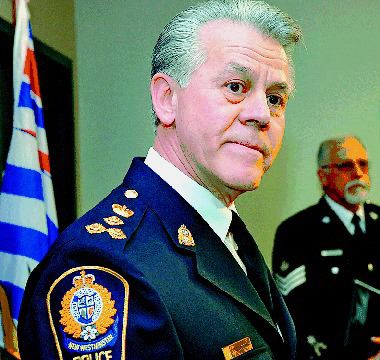
TASER moratorium needed, committee told
April 5, 2008 in News
Cameron Ward appeared before a House of Commons Committee Friday, urging it to recommend a moratorium on TASER use until rigorous independent scientific research has been conducted into the manufacturer’s claims that the weapons do not kill people. Mr. Ward presented the committee with a list of the names of 336 North Americans who have died after being shocked by the TASER’s 50,000 volt electrical output.
In response to a member’s question, forensic pathologist Dr. John Butt confirmed that autopsies cannot detect the effect that TASER electricity may have on a human body.
Here is the summary of Mr. Ward’s presentation:
For the reasons summarized below, I urge you to act in the public interest and make a recommendation that there be an immediate moratorium on the deployment of TASER weapons, so further unnecessary deaths like those of Robert Bagnell and Robert Dziekanski can be prevented.
According to media accounts, at least 336 North Americans have died since September 28, 1999 after being subjected to TASER shock(s). A copy of my list of these fatal incidents is enclosed. There have now been at least 20 reported deaths in Canada, including six here in the Province of British Columbia, with the most recent being that of Mr. Dziekanski on October 14, 2007 at Vancouver International Airport in Richmond.
TASER use is obviously very controversial. Police departments in Chicago, Illinois and Birmingham, Alabama have reportedly discontinued their use of the weapons due to safety concerns. Amnesty International, the American Civil Liberties Union, the National Association for the Advancement of Colored People and the Southern Christian Leadership Conference are some of the public interest advocacy groups that have been
outspoken in their criticism of the weapons. However, the principal manufacturer, TASER International Inc. , has been very effective in persuading the law enforcement
community that its products are safe, despite a significant body of evidence to the contrary .
Simply put, many people, including many experts, cannot accept that the deaths of at least 336 people after being subjected to the TASER’s 50,000 volt electrical output are purely coincidental. The manufacturer and many members of the law enforcement community have adopted the position that “excited delirium” causes the deaths, due to “psychiatric illness or the over use of street drugs, primarily methamphetamine or cocaine”, not the electrical trauma associated with the TASER. In my view, there simply has been insufficient independent research and study into these fatalities to reach any valid conclusions. If “excited delirium” is a “potentially fatal medical condition”, as the manufacturer asserts, one would expect that deaths would occur with similar frequency in incidents that did not involve law enforcement or in situations where TASER weapons had not been used. That is apparently not the case, as I have not yet seen any studies to that effect.
Although TASER International Inc. has commissioned some limited testing on animals, extensive independent testing of the lethality of the devices has apparently never been done in Canada, and was certainly not done before TASER weapons were first distributed to Canadian law enforcement personnel. Furthermore, although other electrical restraint devices like electric fences or cattle prods are subjected to Canadian Standards Association (CSA) testing and certification before distribution, the TASER weapons apparently are not.
You are undoubtedly aware of the TASER Technology Review Final Report prepared by members of the Victoria Police Department at the behest of the Police Complaint Commissioner of British Columbia. In my view, this report was clearly not independent as one of the principal authors, one Inspector Darren Laur, had earlier received payments and stock options from TASER International Inc. for his services to the company. The report failed to make the obvious recommendation, that is, that TASER use be discontinued until the health effects of the weapon are better understood.
There may be a place in the police use of force continuum for TASER technology. However, TASER use should be suspended until rigorous independent scientific research has been performed to properly assess the public safety risk. Unless that happens, more people will die like Mr. Dziekanski did, inexplicably and unnecessarily.
posted by Cameron Ward
Ivan Henry – a step closer to freedom?
March 30, 2008 in News
Independent Special Prosecutor Leonard Doust, Q.C. has delivered his report to the Criminal Justice Branch in the case of Ivan Henry. Mr. Henry was convicted of a series of sexual assaults and sentenced to an indefinite jail term in 1983, following a trial in which he represented himself. He has steadfastly maintained his innocence since 1982, asserting that he was wrongly arrested by the Vancouver Police Department. His conviction appeal was dismissed by the Court of Appeal for want of prosecution, after he failed to purchase and file a copy of the trial transcript.
Read the Criminal Justice Branch’s March 28, 2008 media release:
posted by Cameron Ward
Appeals heard in pie saga
March 15, 2008 in News
The appeals from the trial decision in Ward v. City of Vancouver et al. were argued on March 13 and 14, 2008 before three Justices of the British Columbia Court of Appeal. Judgment has been reserved. The case was brought after police refused to apologize to Cameron Ward for their conduct in arresting, strip-searching and imprisoning him after wrongly suspecting he might be involved in some kind of plot to attempt to throw a pie at the Prime Minister of Canada.
Brian Samuels appeared as counsel for Mr. Ward and Prof. Kent Roach was counsel for the British Columbia Civil Liberties Association, which had interbenor status.
The earlier decisions of the Supreme Court of British Columbia can be viewed by clicking here: upload
here: upload
and here: upload
posted by Cameron Ward
Finally, Tait inquest to begin
March 2, 2008 in News
March 11, 2008 update: Coroner Liana Wright has dismissed Cst. Todd Sweet’s application for a ban on publication of the proceedings at Noel Tait’s application for the production of records of Sweet’s history of complaints and anger management treatment. She reserved judgment on the latter application.
…..
March 5, 2008 update: Lawyers for Todd Sweet and the City of New Westminster will be seeking a publication ban on all proceedings at Noel Tait’s application for further document disclosure, according to documents served on us today.
…..
March 3, 2008 update: The coroner’s inquest has been adjourned to Monday, March 10, 2008 when lawyers will make submissions on the family’s application for fuller disclosure. The family is seeking more documents in addition to those recently disclosed by the coroner, including records of Todd Sweet’s prior violent altercations, his anger management counselling records and the New Westminster Police Service’s policies on employing violent offenders.
…..

Kyle Tait (1989-2005)
After a two and a half year wait, Kyle Tait’s family will finally have an opportunity to seek answers to their questions when the coroner’s inquest into his death begins Monday in Burnaby. Sixteen year old Kyle was fatally shot by New Westminster police constable Todd Sweet on August 23, 2005 following a short police pursuit. Kyle was one of four teenagers, two boys and two girls, riding as passengers in a stolen SUV driven by Ian Campbell, 18, when Cst. Sweet fired three bullets into the vehicle. Campbell was struck in the hand and Kyle died at the scene. Fortunately, the bullets missed the two 14 year old girls and the 15 year old boy riding in the back seat.
On June 19, 2005, some two months before Kyle’s fatal shooting, Cst. Sweet had assaulted a car theft suspect in a “cowardly act suggesting perhaps an act of unlawful street justice”, according to Judge Weitzel’s reasons on sentencing. The judge noted that neither Sweet nor the other officers on the scene initially reported the assault and ordered Sweet to receive anger management counselling as part of his sentence for the criminal conviction of assault causing bodily harm.
Three months before that, in March, 2005, Sweet reportedly assaulted a 70 year old widow, who later sued for damages.
When asked why Cst. Sweet was still on active duty following the June, 2005 incident, New Westminster Chief Constable Lorne Zapotichny reportedly told The Vancouver Sun that he “did not have anough evidence to support the complaint [of excessive force]”. Kyle Tait’s family plans to pursue this issue, among others, at the inquest.
Read Judge Weitzel’s Reasons for Sentence in R. v. Sweet here: upload
Read The Vancouver Sun, February 7, 2007 article here: upload

Chief Constable Lorne Zapotichny

Constable Todd Sweet
The coroner’s inquest is now scheduled to commence Monday, March 10, 2008 at 9:30 a.m. at Coroner’s Court, Metrotower II, Burnaby, BC.
Note: In British Columbia, legal aid is not available to the family of the deceased. If they wish to be represented by counsel, they must pay a lawyer or find one who will work for free. Typically, all of the other participants are paid by public funds. This case is no different. Almost everyone who enters the room at the coroner’s inquest into Kyle Tait will be receiving taxpayer dollars to attend. That includes, the coroner, the coroner’s lawyer, the sheriff, the coroner’s staff, the lawyer for the City of New Westminster, the lawyer for Todd Sweet and the police officers who are required to attend as witnesses.
Any suggestion that the coroner’s counsel can represent the interests of the deceased is, in these police-involved cases at least, open to serious question*.
The requirement that the family of the deceased must use their own money to pay for legal representation is, in my opinion, an unfair extra burden on them since they have usually suffered enough by the time an inquest is finally convened. The law needs to be reformed so that the deceased’s next of kin are on an equal footing with the public institutions who are usually involved in these cases.
*The BC Coroners Service: Independent from the police?
The BC Coroners Service is headed up by Chief Coroner Terry Smith (ex-RCMP, 35 years, retired with RCMP pension) and Deputy Chief Coroner Norm Leibel (ex-RCMP, 25 years, retired with RCMP pension), who report to Solicitor General John Les, responsible for policing in BC.
Kyle Tait’s death was investigated by members of the NWPS and RCMP. According to Judge Weitzel’s reasons on sentencing Todd Sweet for his June 2005 crime, “a number of senior police officers from New Westminster, the RCMP and the Vancouver Police Department have written letters of support on behalf of Sweet…”
posted by Cameron Ward
AGBC says documents privileged
February 20, 2008 in News
Documents generated in respect of Crown Counsel’s decision not to charge anyone implicated in the death of Frank Paul are privileged and not subject to disclosure to the Frank Paul Inquiry, argued lawyers representing the Criminal Justice Branch of the Ministry of Attorney General. This follows an earlier application for an order that the Crown enjoys an immunity that shields it from producing witnesses to the Commission of Inquiry.
Commission William Davies Q.C. has reserved judgment on both applications.








 Follow this site using RSS
Follow this site using RSS

